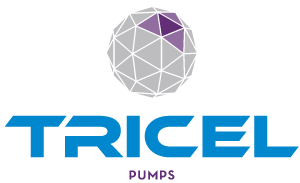frequently asked questions
We are here to help with all your pump queries. If you cannot find what you are looking for, get in touch and we will be happy to help with your query
tricel pumps FAQ'S
What are different types of pumps?
Basically, there are two types of pumps: A Centrifugal Pump B: Positive Displacement pump!
Positive Displacement = rotary lobe pump, progressive cavity pump, rotary gear pump, piston pump, diaphragm pump, screw pump, gear pump, Hydraulic pump, vane pump
Centrifugal Pumps = end-suction pumps, in-line pumps, double suction pumps, vertical multistage pumps, horizontal multistage pumps, submersible pumps, self-priming pumps, axial-flow pumps, regenerative pumps.
What is the basic difference between single-stage and multi-stage centrifugal pump?
The Single-stage pump has one impeller and the multi-stage pump has two or more impellers in series!
What is a wet running pump?
In this pump design, all rotating parts (shaft, rotor, impeller) are located within the can in the pumped medium. Cooling and lubrication are provided by the pumped medium.
How Cavitation Can Be Eliminated In A Pump?
Cavitation means bubbles are forming in the liquid.
To avoid cavitation, we have to increase the pump size to one or two Inch;
To increase the pressure of the Suction Head, or decrease the pump speed.
Why cavitation will occur in centrifugal pumps and not in displacement pumps?
The formation of cavities (or bubbles) is induced by flow separation, or non-uniform flow velocities, inside a pump casing.
In centrifugal pumps, the eye of the pump impeller is smaller than the flow area of the pipe. This decrease in flow area of the pump results in an increase in flow rate.
So pressure drop happened between the pump suction and the vanes of the impeller.
Here air bubbles or cavities are formed because of liquid vapour due to an increase in temperature in the impeller. These air bubbles are transmitted to the pump which forms cavitation.
How do i choose a water pump for domestic use?
The higher it is, the quicker it pumps. A range of 100-200 LPM is usually sufficient for a household.
Head Range – Head here refers to the discharge head – the vertical distance that you will be pumping the water.
The head range should fall within this distance for the water pump to pump water effectively.
what is the difference between a wastewater pump and a drainage pump?
A drainage pump is primarily intended for pumping surface water and seepage to different locations, and for the pumping of groundwater.
Wastewater pumps on the other hand are primarily used to dispose of wastewater. This includes e.g. pumping wastewater out of collector pits and pumping station applications.
CPR (Construction Products Regulations 305/2011) covers products that are covered by Harmonised European Standards for example waste water treatment systems. CE marking & certification does not apply to products that are not covered by Harmonised European Standards. GRP cold water storage tanks are not covered by such a standard however we do manufacture our tanks in accordance to BS6700, ISO9001-2015 & they carry WRAS approval.
view our product range
Check out our product range of Water Pumps, Water Pumping Systems and associated products that we supply.
CONTACT US
Arrange a callback or email enquiry
recent projects
Tricel is a leading pump distributor in Ireland, specializing in commercial building service products. Our recent projects include hotels, schools, hospitals, and apartment complexes. We offer an extensive range of products, from circulator pumps to wet riser booster sets.
Our team of experts is ready to assist with equipment selection and provide tailored quotes to meet your requirements. At Tricel, we take pride in delivering the highest standards of customer service throughout the entire project lifecycle—before, during, and after completion.
We also offer preventative maintenance contracts and cater to specific repair needs.

